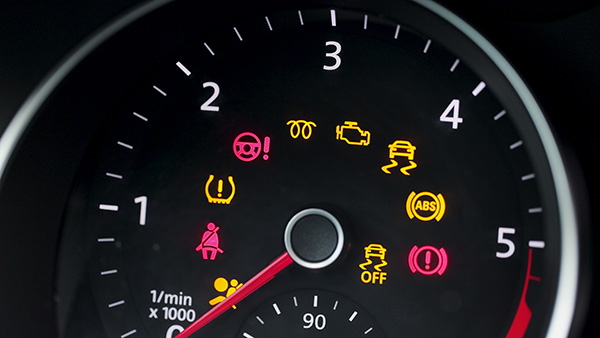
It can be unsettling to see a warning light flash on your dashboard, especially when it disappears just as quickly. Whether it’s the check engine light, battery icon, or ABS alert, random illumination often leaves drivers wondering whether to worry or ignore it. While some may hope it’s just a glitch, dashboard lights usually activate for a reason. Even if they come and go, they shouldn’t be brushed off.
Understanding what causes these intermittent warnings can help you stay ahead of bigger problems. Let’s take a look at why these lights may appear without warning, what systems might be affected, and what to do when it happens.
The Role of Your Vehicle’s Onboard Diagnostics System
Modern vehicles rely on an onboard diagnostics system (OBD-II) to monitor engine performance, emissions, and various safety systems. Sensors constantly send feedback to your car’s computer, which looks for readings outside of normal parameters.
When something doesn’t line up, such as a misfire, low voltage, or sensor error, the system stores a diagnostic trouble code (DTC) and activates a warning light. If the irregularity corrects itself or is only temporary, the light may turn off again without clearing the underlying code.
That’s why some warning lights flicker or vanish, even when the issue hasn’t been resolved.
Common Causes of Random Warning Lights
One of the most common reasons for intermittent dashboard lights is a weak or unstable electrical connection. This could be due to a failing battery, loose terminal, corroded connector, or even a faulty ground wire. Electrical fluctuations confuse your car’s control modules, leading to random alerts.
A failing sensor is another likely suspect. Oxygen sensors, MAF sensors, and wheel speed sensors can send incorrect readings due to age or contamination. If they occasionally provide out-of-range values, a warning light might flash without staying on consistently.
Low fluid levels, such as those in oil or brake fluid, can also cause temporary alerts. When fluid sloshes during turns or braking, sensors might detect a low level for a brief moment.
In some cases, software glitches or updates are to blame. If your vehicle’s software is outdated, it may misinterpret sensor data or misfire warning lights altogether.
Should You Be Concerned
While a warning light that turns off on its own may not always indicate an emergency, it’s not something to ignore. Even if the car seems to drive fine, underlying problems could be developing. A misfiring spark plug, inconsistent fuel pressure, or degraded sensor could reduce performance or fuel economy without any obvious symptoms.
More importantly, intermittent warning lights make it hard to detect real trouble when it happens. If your check engine light is always flickering, you may overlook a serious issue when it finally stays on.
That’s why it’s best to have the system scanned for diagnostic codes. These codes remain stored even after the light turns off and can provide valuable insight into what’s going wrong.
How Technicians Diagnose Intermittent Dashboard Lights
A technician begins by connecting a scan tool to your car’s OBD-II port. This reveals current and stored codes, including ones associated with previous light activity. From there, they can determine which system was involved and begin testing.
If the issue relates to a sensor, the technician may inspect the wiring, test voltage readings, or examine the sensor's function under different driving conditions. In the case of electrical problems, battery and charging system tests are often performed.
Sometimes, further diagnostics are required, especially if the problem doesn’t reproduce during inspection. This is where experience matters. Seasoned technicians can trace subtle clues and uncover issues that might otherwise be missed.
Why It’s Important to Act Promptly
Delaying the diagnosis of a dashboard warning light can lead to larger problems. For example, what starts as a small misfire could damage your catalytic converter if left unresolved. Likewise, a flickering oil light may indicate inconsistent pressure, which could lead to engine wear or failure.
Besides performance and safety concerns, some states require emissions testing or vehicle inspections that rely on dashboard warning lights. If your vehicle is throwing codes or the check engine light is on, it may fail inspection, even if the issue seems minor.
Get to the Bottom of Intermittent Dashboard Lights at Brazzeal Automotive in Tampa, FL
When your dashboard sends mixed messages, don’t ignore them. A flickering warning light may seem harmless, but it could be your car’s way of calling for help. Acting early can save time, money, and frustration in the long run.
Call Brazzeal Automotive in Tampa, FL, today for a complete diagnostic scan. Our experienced technicians will identify the cause of your warning lights and make sure your vehicle is running reliably and safely.